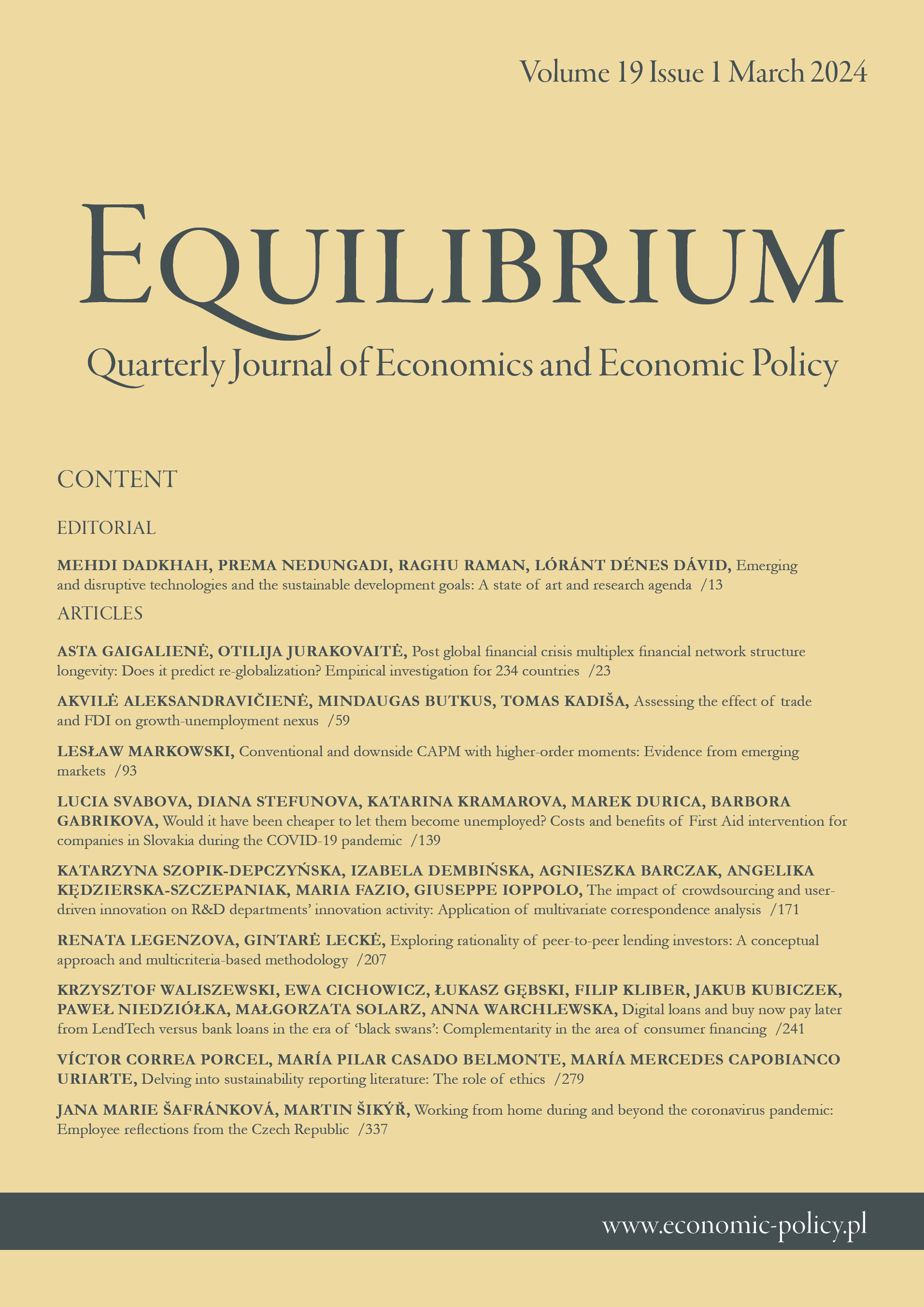Luxury, slow and fast fashion: A case study on the (un)sustainable creating of shared values
IF 6.2
Q1 ECONOMICS
Equilibrium-Quarterly Journal of Economics and Economic Policy
Pub Date : 2023-09-30
DOI:10.24136/eq.2023.026
引用次数: 1
Abstract
Research background: Since crises magnify differences and bring both challenges and opportunities, the current complex global setting makes the mutual interconnection a fundamental platform meant to create confidence and also to lead to a unique strategic advantage. Due to its inherent particularities, the fashion industry is a relevant sphere for performing a categorial reflective triangulation study about the understanding and employment of creating shared values (CSV) within the EU framework. Purpose of the article: The purpose of the article is to research, analyze and critically highlight how CSV is approached by archetypical fashion industry businesses from all three fundamental segments (luxury, fast, slow) and how this fits into the EU law framework. Methods: A categorial reflective triangulation study in four steps is performed while using a content analysis, empirical field observation, qualitative manual Delphi approach and critical juxtaposition with glossing and Socratic questioning. Firstly, 30 archetypical fashion industry businesses are identified and split into luxury, slow and fast fashion segments. Secondly, for each business, research is done on how it identifies its CSVs. Thirdly, the verification of these CSVs is performed in order to confirm or reject the genuineness. Fourthly, the results are projected into the EU framework. Findings & value added: Based on the performed study and its critical analysis, there appear extremely interesting dynamics in the CSV perception and strategies by luxury, slow and fast fashion businesses with a clear overlap in the EU sphere. In particular, fashion businesses from all three segments take into consideration sustainability and the fight against waste, but each segment has a different pro-CSV strategy to do so, and it is critical to contemplate which of these three strategies will become sustainable.奢侈、慢时尚和快时尚:共享价值(非)可持续创造的案例研究
研究背景:由于危机放大了差异,既带来了挑战,也带来了机遇,当前复杂的全球环境使相互联系成为一个基本平台,既可以创造信心,也可以带来独特的战略优势。由于其固有的特殊性,时尚产业是在欧盟框架内对创造共享价值(CSV)的理解和使用进行分类反射三角测量研究的相关领域。本文的目的:本文的目的是研究、分析和批判性地强调典型的时尚行业企业如何从三个基本部分(奢侈、快速、慢速)中接触CSV,以及这如何适应欧盟法律框架。方法:采用内容分析、实地实证观察、定性手工德尔菲法、批判性并视法和苏格拉底式质疑法,分四步进行范畴反射三角法研究。首先,确定了30个典型的时尚行业企业,并将其分为奢侈品、慢时尚和快时尚三个部分。其次,对于每个企业,研究如何确定其企业社会责任。第三,对这些csv进行验证,以确认或拒绝其真实性。第四,将结果纳入欧盟框架。的发现,附加值:根据所进行的研究及其批判性分析,奢侈品、慢时尚和快时尚企业在CSV感知和战略方面出现了非常有趣的动态,它们在欧盟领域有明显的重叠。特别是,这三个行业的时尚企业都考虑到可持续性和反对浪费,但每个行业都有不同的支持csv的战略,考虑这三个战略中哪一个是可持续的是至关重要的。
本文章由计算机程序翻译,如有差异,请以英文原文为准。
求助全文
约1分钟内获得全文
求助全文
来源期刊
CiteScore
9.20
自引率
3.50%
发文量
28
审稿时长
36 weeks
期刊介绍:
Equilibrium. Quarterly Journal of Economics and Economic Policy is a scientific journal dedicated to economics, which is the result of close cooperation between the Instytut Badań Gospodarczych/Institute of Economic Research (Poland) and Polish Economic Society and leading European universities. The journal constitutes a platform for exchange of views of the scientific community, as well as reflects the current status and trends of world science and economy.
The journal especially welcome empirical articles making use of quantitative methods in: Macroeconomics and Monetary Economics, International Economics, Financial Economics and Banking, Public Economics, Business Economics, Labor and Demographic Economics, Economic Development, and Technological Change, and Growth.
Current most preferable topics and special issues:
The economics of artificial intelligence: business potentials and risks;
Digitalization and entrepreneurship in economics;
Sustainable socio-economic development, environmental and ecological economics;
Transition in the energy market (improving energy efficiency, alternative energy sources, renewable energy, energy security).

 求助内容:
求助内容: 应助结果提醒方式:
应助结果提醒方式:


